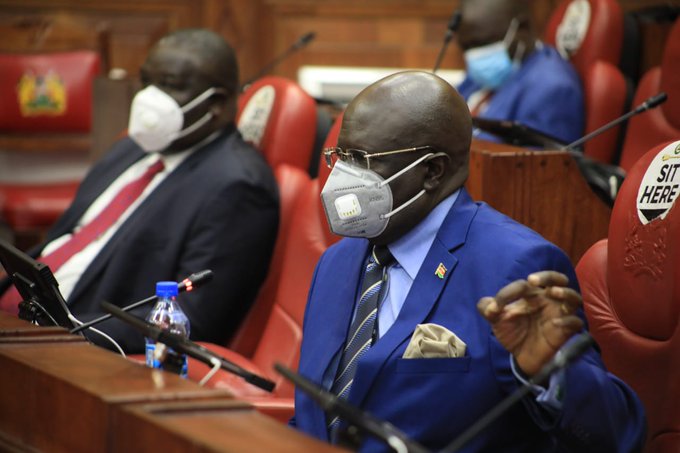Education Cabinet Secretary Professor George Magoha has said schools should be reopened this year as opposed to January next year, 2021. The CS said this while appearing before the Departmental Committee on Education, today, for a status update on Measures for safe reopening of schools amid the COVID-19 pandemic.
“We have to ask ourselves what will be different in January 2021, if there won’t be much difference, we need to move towards a consensus to reopen schools as soon as possible… I cannot give you a definite date, but I can assure you that it is Time to Reopen Learning Institutions, because we do not expect any much difference now.” He told the Legislators.
But, Magoha was quick to point out that it is only the Ministry of Health that will give him a clean bill of health before reopening primary and secondary schools.
“Reopening of all learning institutions should take cognizance of the guiding principles provided by Ministry of Health and the Ministry of Education… Decisions regarding reopening of learning institutions may change as informed by prevailing circumstances and increased knowledge of the COVID-19.” He added.
According to CS Magoha, the minimum reopening conditions as set by the Ministry of Health. He says reducing contact in learning institutions by having fewer learners at the same time will have a great impact in reducing COVID-19 cases and fatalities associated with reopening of institutions. At the same time, social distancing, hand-washing with soap or use of sanitizers, wearing of masks / face shields and monitoring body temperature will have a great impact on reducing COVID-19 infections.
See also;
- KNEC gives a circular on KCSE and KCPE exams
- Reopening of schools- Kuppet supports President Kenyatta’s move to postpone schools’ reopening
- TSC tells teachers to report to schools on a daily basis, gives them tasks to do
- TSC-KNUT disputes; Speaker Muturi tells education committee to keep off
Magoha’s pronouncement, on Wednesday, came a day after he announced a phased reopening approach to institutions of higher learning; with priority given to finalists.
“Reopening of learning institutions should prioritise finalists and examination cohorts in Universities,Teacher Training Colleges and TVET institutions. For schools, reopening should prioritize candidate classes (Standard 8 and Form 4) and the pioneer Competency Based Curriculum (CBC) cohort (Grade 4) to facilitate smooth transition.” Magoha explained.

During his address to the Nation on Monday, President Uhuru Kenyatta warned against rushed reopening of basic learning institutions saying the safety of learners whould be given priority.
Teachers have at the same been told to continue reporting for duty and ensure their schools are ready to receive learners once the opening dates are announced.
The Teachers Service Commission, TSC, has instructed school heads and principals to update all teachers’ details in both the Teachers Management Information System (TMIS) and Teacher Performance Appraisal Development (TPAD) systems. This is supposed to be done by close of Business on Friday October 2, 2020.